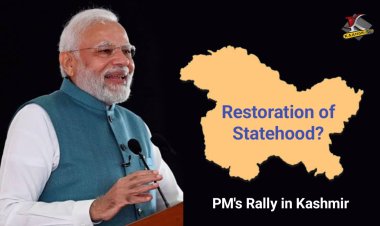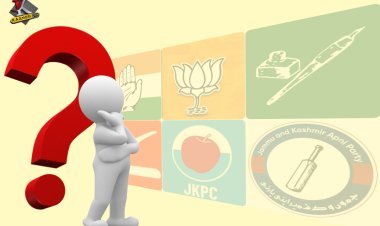Women Empowerment || A myth in J&K
Ayaz Mughal

Jammu and Kashmir, known for its rich cultural heritage and diverse population. However, despite the presence of a strong and vocal women's population in the State, women Sarpanches are often seen as nothing more than a dummy, controlled by their male counterparts (husband, father, brother etc).
The Panchayat Raj System, was meant to empower rural communities by giving them a greater say in local governance. As part of this system, village councils were established, with the Sarpanch as the head of the council. However, the provision of 33 per cent reservation for women was introduced under Panchayat Raj System. The idea was to ensure that women, who had traditionally been marginalized in rural communities, were given a greater role in decision-making.
This has brought some changes in the system. Many women sarpanches are strong and independent who make decisions based on the needs and well-being of their communities. They have the ability to make real change and contribute positively to their villages and local governments.
However, in Jammu and Kashmir, the reality is still a distant dream. Women Sarpanches are often seen as mere figureheads, with their male counterparts pulling the strings behind the scenes. They are often not consulted on important decisions, and their opinions and suggestions are often ignored. In many cases, they are not even aware of the details of the schemes and projects that are being implemented in their villages. Women Sarpanches are not allowed to participate in decision-making processes and are often excluded from meetings and other gatherings where important decisions are made. This lack of participation limits their ability to advocate for their halqa panchayats and make decisions that reflect the needs and priorities of the community.
Additionally, women Sarpanches are often stigmatized and not taken seriously by the public and other government officials, because of their gender. This undermines their ability to effectively serve their role in the community. One of the main reasons for this is the patriarchal mindset that still prevails in Jammu and Kashmir, (like many other parts of the country). Men, who have traditionally been the decision-makers in rural communities, find it hard to accept women as equals. They see women Sarpanches as a threat to their power and status, and are unwilling to give them a meaningful role in decision-making.
Another reason for the lack of empowerment of women Sarpanches is the lack of support and training provided to them. Many women Sarpanches are not familiar with the workings of the Panchayat Raj system, and are not equipped with the necessary skills and knowledge to effectively discharge their duties. They are also not given any training on how to manage and implement schemes and projects, which further undermines their ability to lead.
The consequences of this lack of empowerment are dire. Villages in Jammu and Kashmir are not able to fully utilize the benefits of the Panchayat Raj system, as women Sarpanches are unable to effectively represent the needs and aspirations of their communities. This in turn leads to a lack of development and progress in these villages, as schemes and projects are not implemented in an effective manner. Some women Sarpanches are not able to make important decisions without the approval of their male counterparts, or are not able to make decisions that go against the will of the powerful members of the community. This lack of autonomy undermines their ability to effectively govern and serve the community.
It is high time that the government and other stakeholders take urgent steps to address this issue. Women Sarpanches must be provided with adequate training and support, so that they can effectively discharge their duties. A more gender-sensitive approach must be adopted, so that the patriarchal mindset that prevails in Jammu and Kashmir can be overcome.
The author is Editor-in-Cheif of Kaangri.com. He can be reached at Mob: +919858460733 and Email: editorkaangri.com









